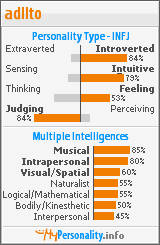 [Word Studies are ] “to try to understand as precisely as possible what the author was trying to convey by his use of this word in this context.” Gordon Fee
[Word Studies are ] “to try to understand as precisely as possible what the author was trying to convey by his use of this word in this context.” Gordon Fee
Having been explaining what Halloween is (All Hallows Eve) for a few days - I've become sensitized to the difference between All Saints and All Souls. Strangely Sunday one service celebrated both All Saints on All Souls. It felt strange though I understand some churches have merged the two. So you don't understand? All Saints' Day (also known as All Hallows' Day) is a feast day on November 1st to remember all the saints (literally Holy Ones) and martyrs throughout history. All Souls remembers all the faithfully departed this life especially those who have passed a way recently, while All Saints looks to those who inspire and model the faithful life to us. Therefore the two events are contrasted by mourning and living life fully. We ought to understand the words and events in their contexts.
Joey whose blog I follow has been posting about the meaning of Biblical words with particular emphasis on context. He comments about Duvall and Hays comment that "we should always keep in mind the distinction between determining the meaning and discovering the meaning." He notes key issues from Duvall and Hays' book. Namely English-Only Fallacy - languages do not translate exactly on a one to one basis, Root Fallacy - dismantling a word doesn't give its meaning rather its context does (just think about aweful), Time-Frame Fallacy - the modern word doesn't really point to the original word (thus the greek word dynamis doesn't mean dynamite), Overload Fallacy - over using other usages to determine the meaning rather than firstly studying the context of use (different human writers were involved) , Word Count Fallacy - assuming studying word is a complete understanding of the subject, Selective-Evidence Fallacy - only using verses that support our position instead of recognizing verses that challenge or present an opposite (Paradox and tension are integral to faith).
But there is more when using a Christian author's particular point of view. Thinking changes positions over a life time and we may adopt an understanding which the author has altered or even recanted. One only has to realize that Rick Warren, the writer of The Purpose Driven Life has publicly confessed a major omission in his understanding of the church, i.e. that of justice and poverty. Also Bill Hybel of Willow Creek noting their lack of attention to discipleship. Probably most interesting change is the ultimate individualist philosopher Jean Paul Sartre not only became a convinced socialist but there remain rumors he became a Roman Catholic (But never proven).
It seems to me we necessarily are called to think and continue to think. To judge and weigh things and make decisions that lead to actions. People of faith need to study and think and to be constantly open to discovering meaning in the divine human relationship.
That which was from the beginning, which we have heard, which we have seen with our eyes, which we have looked at and our hands have touched—this we proclaim concerning the Word of life. 1 John 1:1
Monday, November 3, 2008
All Saints and All Souls Days
at
9:24 AM
![]()
Labels: discernment, justice, meaning, wisdom









